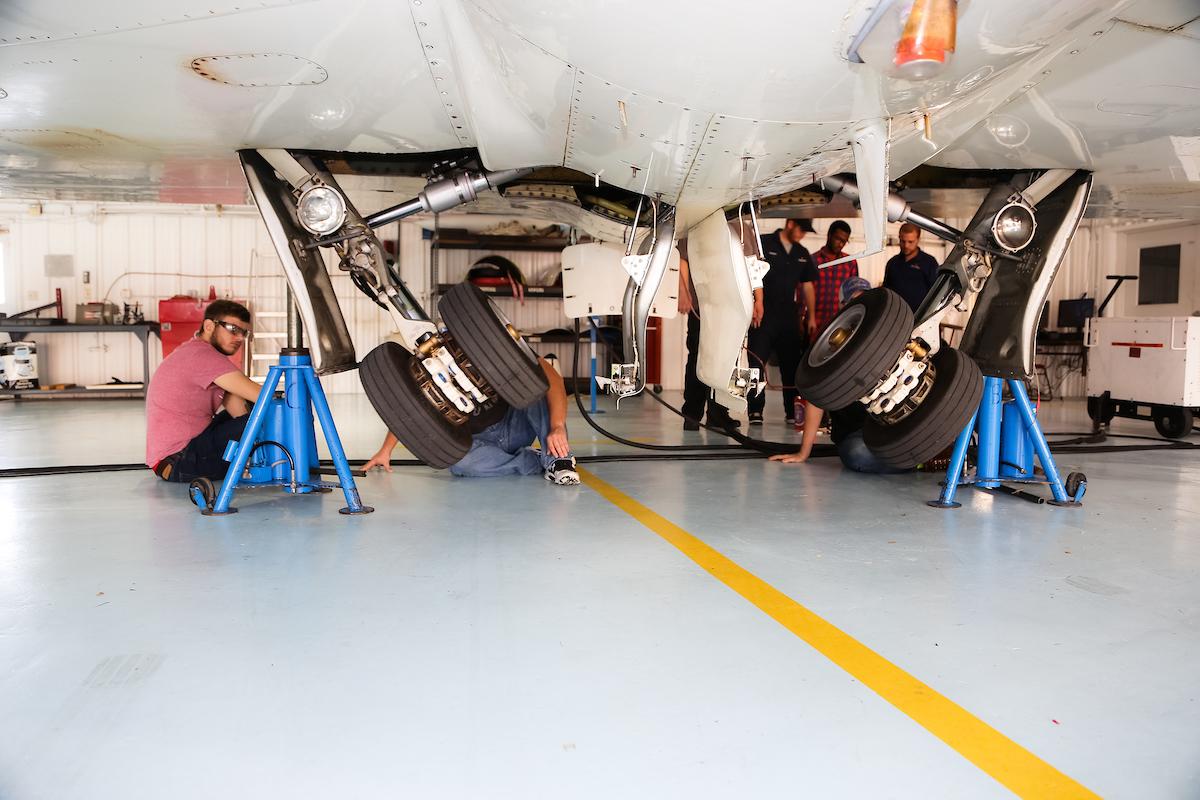Could Pandemic Push FAA To Change Outdated Maintenance Training Requirements?

The COVID-19 pandemic could be the push the industry needs to get the FAA to update outdated aviation maintenance training regulations.
The pandemic forced the FAA to issue temporary guidance to allow Part 147 aviation maintenance technician schools to move to a hybrid teaching environment. This allowed schools to quickly shift a portion of their in-person classroom training to online instruction when schools closed due to stay at home orders. The education outcome could be the proving ground to show the regulator that online, or hybrid classroom-online learning, is effective.
Embry-Riddle Aeronautical University (ERAU) transferred all of its Level 1 and 2 courses to online modality in three days, reported Eric Jones, department chair of aviation maintenance sciences, during an Aviation Week webinar on May 20. Lab work needed to be deferred until it could be done in person. ERAU has slated this for its summer session that starts June 30. Jones praised the faculty for doing a fantastic job in a short period and said student learning valuations have been strong, which is a positive validation point for online instruction in the future.
WSU Tech also reworked it Level 1 and 2 courses from classroom to online while tracking synchronous and asynchronous training to comply with the FAA’s 1,900 hours of instruction requirement, the school’s dean of aviation technologies James Hall said during the webinar.
Like ERAU, WSU Tech postponed labs until they can be done in person starting June 1. Class sizes will be limited to nine students and one instructor due to 6-ft. social distancing requirements. Hall says each student will be given an N95 mask and assigned his or her own cleaning supplies and cleaning station for the labs. WSU Tech also can “fog” labs between each session to disinfect the area.
Jones says the CDC (U.S. Center of Disease Control and Prevention) mandates and social distancing requirements will create challenges for schools to deliver rigorous lab experiences, but they are “not insurmountable.”
The FAA traditionally hasn’t approved distance learning, which has been a challenge for schools. Hall says the FAA has only approved three Part 147 schools for distance learning, but that could change given that more than 50% of ATEC (Aviation Technician Education Council) members have recently applied to the FAA for some kind of hybrid classroom-online approval. Schools operating online during the pandemic “hope to prove (to the FAA)” that they can operate in a hybrid environment going forward, he said.
Like many in the industry, ATEC wishes the FAA would change its training requirements to competency-based as opposed to hours in a seat. Schools are “mandated to teach 60-year-old technologies and obtain FAA approvals to modify curriculums and operating procedures. The long-outdated rule is creating an increasingly inflexible framework, hindering innovation in aviation technical education, and continually increasing new hire training costs for employers,” ATEC said in a recent policy brief.
Without changes, schools could close, as evidenced by a webinar poll asking how training organizations are operating during the pandemic. While 47% said “online only instruction,” 17% said hybrid and in-person instructions, 11% said in-person with social distancing and 24% had suspended operations.
Closely aligned, a recent ATEC poll found 25% of its schools suspended operation during the pandemic and some of those are considering doing so permanently, partially due to the outdated regulatory requirements, Hall said.
On the bright side, schools such as the British School of Aviation have had more inquiries about enrollment since the pandemic outbreak, according to its director Shonu Bamrah. The UK school says it has been teaching some online courses but it cannot provide type-rated training due to regulatory limitations. Even in today’s environment where the aviation industry is taking a big hit, Bamrah does not think recruiting students will be a problem.
Many redundancies in Europe have been voluntary, by people already planning to retire in the next year or two, Bamrah said, and this will lead to vacancies that will need to be filled as the industry recovers.
Listen to the full webinar recording - Aircraft Maintenance Training During COVID-19





